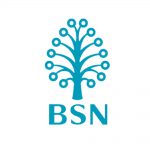Microsoft Azure AI-900 Course Info
Microsoft Azure AI-900 introduces fundamentals concepts related to artificial intelligence (AI), and the services in Microsoft Azure that can be used to create AI solutions. The course is not designed to teach students to become professional data scientists or software developers, but rather to build awareness of common AI workloads and the ability to identify Azure services to support them. The Microsoft Azure AI-900 course is designed as a blended learning experience that combines instructor-led training with online materials on the Microsoft Learn platform (https://azure.com/learn). The hands-on exercises in the course are based on Learn modules, and students are encouraged to use the content on Learn as reference materials to reinforce what they learn in the class and to explore topics in more depth.
What Will I Learn From Microsoft Azure AI-900?
Describe Artificial Intelligence workloads and considerations
Describe fundamental principles of machine learning on Azure
Describe features of computer vision workloads on Azure
Describe features of Natural Language Processing (NLP) workloads on Azure
Describe features of conversational AI workloads on Azure
Microsoft Azure AI-900 Methodology
Lectures, visual presentations, hands-on demo files, lab exercises and Q&A.
Pre-Requisite
Prerequisite certification is not required before taking this Microsoft Azure AI course. Successful Azure AI Fundamental students start with some basic awareness of computing and internet concepts, and an interest in using Azure AI services.
Target Audience
The Microsoft Azure AI Fundamentals course is designed for anyone interested in learning about the types of solutions artificial intelligence (AI) makes possible, and the services on Microsoft Azure that you can use to create them.
Microsoft Azure AI Course Outline
Module 1: Introduction to Microsoft Azure AI
- Artificial Intelligence in Microsoft Azure
- Responsible AI
Module 2: Machine Learning
- Introduction to Machine Learning
- Azure Machine Learning
Module 3: Computer Vision
- Computer Vision Concepts
- Computer Vision in Azure
Module 4: Natural Language Processing
- Describe features of Natural Language Processing (NLP) workloads on Azure
Module 5: Conversational AI
- Conversational AI Concepts
- Conversational AI in Azure
The Benefits of Taking the Microsoft Azure AI-900 Course
- Learning how to use Azure services to create and deploy AI and ML applications
- Understanding the basics of machine learning and artificial intelligence concepts
- Getting exposure to real-world applications of machine learning and artificial intelligence
- Gaining Microsoft Azure certification, which can help boost your career prospects.
- Gaining hands-on experience working with Microsoft Azure services
How Microsoft Azure AI-900 can help Your Business
Microsoft Azure AI-900 provides a comprehensive set of cloud-based services that organizations can use to develop, deploy, and manage AI applications. Microsoft Azure AI-900 services make it easier for developers to build AI models, more quickly train them using large amounts of data, and easily deploy those models into production.
Businesses of all sizes can benefit from Microsoft Azure AI-900 services. The Microsoft Azure platform is scalable and can easily accommodate the needs of any organization, regardless of size. Microsoft Azure also offers a wide range of features and services that businesses can use to develop and deploy AI applications.
Organizations that use Microsoft Azure services can benefit from the following:- Reduced time to market: Microsoft Azure AI services can help organizations reduce the time it takes to develop and deploy AI applications.
- Increased scalability: Microsoft Azure AI services are scalable and can easily accommodate the needs of any organization, regardless of size.
- Improved performance: Microsoft Azure AI services can help organizations improve the performance of their AI applications.
- Reduced costs: Microsoft Azure AI services can help organizations reduce the cost of developing and deploying AI applications.
How to get started with Microsoft Azure AI Services
- To get started with Azure AI services, you’ll need to create an Azure account. You can sign up for a free trial account if you don’t have an Azure subscription.
- Once you have created an Azure account, you’ll need to install the Microsoft Azure Machine Learning SDK. This SDK allows you to develop and run machine learning models on your computer.
- After installing the Microsoft Azure Machine Learning SDK, you’ll need to create a new Microsoft Azure Machine Learning Workspace. This workspace will provide you with a centralized location where you can develop, train, and deploy your machine learning models.
- Once you have created a Microsoft Azure Machine Learning Workspace, you can begin working with the various Azure AI services.
The Different Services that Microsoft Azure AI offers
- Azure Cognitive Services: This service allows you to add cognitive capabilities to your applications. For example, you can use Azure Cognitive Services to add image recognition or natural language processing to your applications.
- Azure Bot Service: This service allows you to create chatbots that can interact with users in natural language.
- Azure Search: This service allows you to index and search data so that it can be easily discovered by users.
- Azure Machine Learning Service: This service allows you to build, train, and deploy machine learning models. Each of these Azure AI services can be used to create powerful AI applications. By taking the Microsoft Azure course, you’ll gain the skills and knowledge you need to work with these services.
Renganathan Palanisamy has extensive experience in both academic and corporate training arena which enables him to incorporate best practices of both training approach to ensure training delivery is effective and relevant. This is further strengthened by his involvement in various technology related collaboration with renowned players in the industry such as Microsoft, IBM and Oracle. During his service as a Programme Leader in KDU College Sdn Bhd, he was responsible for coordination, collaboration and delivery of courses offered by Sun Microsystems in partnership with Guidance View and as Authorized Sun Education Centre, Oracle under its Workforce Development Programme and Microsoft through its MSDN Academic Alliance Programme.
He started off his early days of involvement in IT industry professing strong inclination towards Java technology and the object oriented design and development practices. He was able to share his in-depth knowledge of the technology via several academic courses and workshops he conducted for students and academic staff alike. Later he ventured into database design and development with Oracle and eventually expanded to include Microsoft SQL Server as well as IBM DB2 and IBM Informix.
Currently his main focus is on delivering Data Management and Business Intelligence tracks which is strongly complemented by his exposure to non-Microsoft related technologies. He has strong understanding of .NET technologies and tools. His knowledge is seeked as evident in his presence at premier events such as Microsoft TechEd and his involvement in SQL PASS local group (SPAN). His technical skills coupled with know-how of training delivery techniques have earned him recognition amongst his peers and attendees of his training sessions. His specialty includes the ability to relate concepts derived from various technologies and ability to ensure smooth transition for trainees migrating to different technology. Resourcefulness is his trademark and this helps enhance the training experience of the attendees.
He is a dynamic and versatile individual. He is willing to take up new challenges to learn and has the ability to apply new skills in a short span of time. Other strengths include good time management, analytical skills, ability to present ideas in innovative ways and most importantly, a sense of responsibility.




